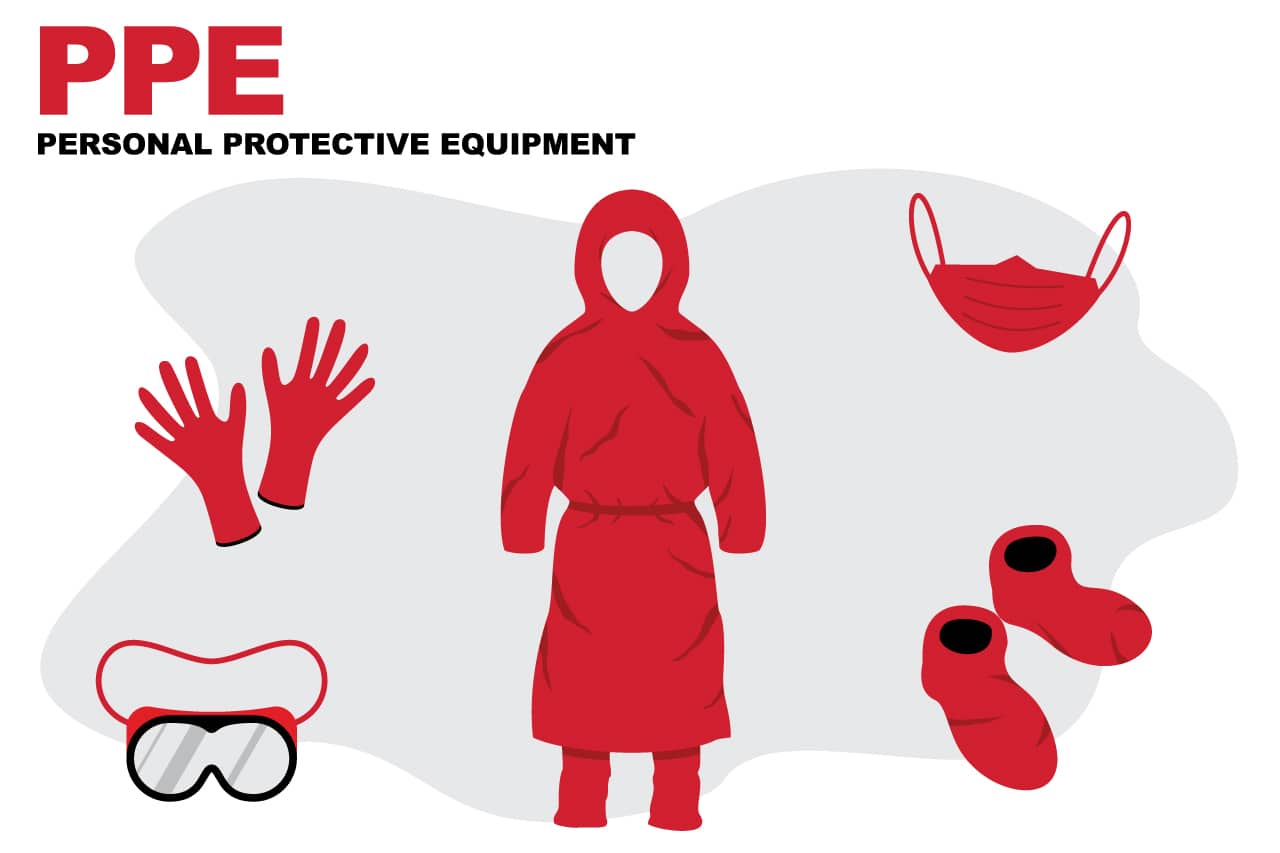Is PPE considered “medical waste”?
With the recent surge in PPE (Personal Protective Equipment) due to COVID-19, many are struggling with how to properly dispose of used PPE. Does it belong in a medical waste container or is using a biohazard bin for PPE simply a waste of money?
Biomedical waste is defined as any kind of waste containing infectious or potentially infectious materials. As most professionals in the medical industry know, infectious waste includes discarded blood, sharps, unwanted microbiological cultures and stocks, human or animal tissue, used bandages and dressings, discarded gloves, other medical supplies that may have been in contact with blood and body fluids, and laboratory waste. Used sharps are also always considered bio waste. All items described above are considered regulated medical waste and always require disposal in sharps containers, red bags, and biohazard bins or boxes.

What is PPE?
Personal Protective Equipment (PPE) is specialized clothing or equipment worn for protection against infectious materials. This includes, but is not limited to:
- Gloves
- Gowns
- Shoe covers
- Head covers
- Face masks
- Face shields
- Respirators
- Eye protection
- Goggles
PPE prevents contact with an infectious agent or body fluid that may contain an infectious agent, by creating a barrier between the potential infectious material and a person.
With the current COVID-19 pandemic, PPE is no longer limited to only healthcare workers. Everyone is now wearing face masks, and sometimes wearing gloves and more. Of course, the purpose of wearing a face mask or gloves is to guard against an invisible virus, so you won’t really know if your used PPE is in fact infectious. Even without knowing if your PPE is contaminated, it still is not considered “medical waste”. When discarding used PPE, if it looks clean and was not knowingly contaminated with blood, tissue, or directly exposed to disease, it can be discarded in the regular trash.
PPE that is deemed safe for the regular trash should not be discarded in red bins or boxes, though it is not against any rules or regulations if it is. It is more important to be sure all biohazardous waste is disposed of in biohazard cans, red bags, and biohazard boxes.

